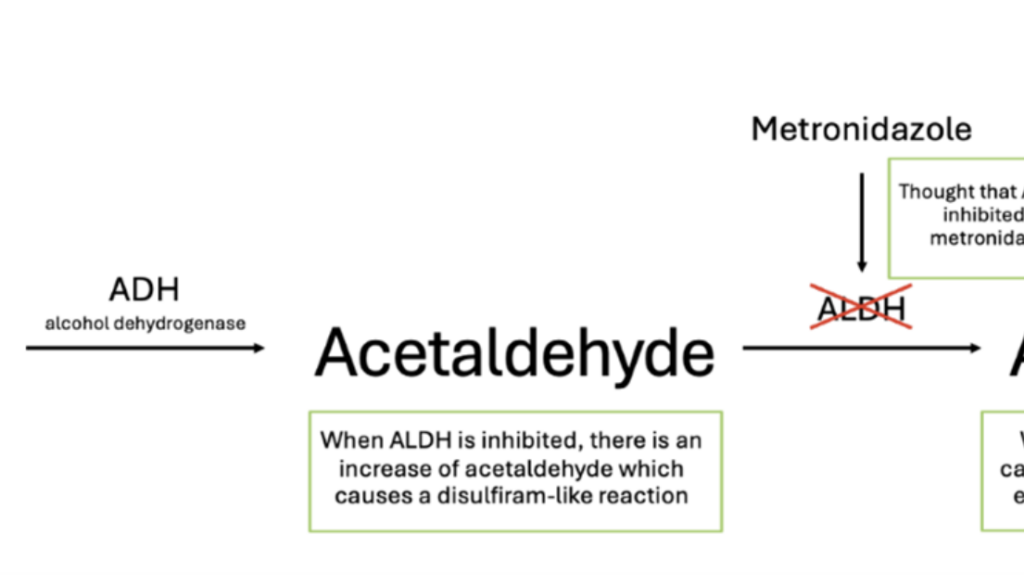Can I drink while taking metronidazole?
Think mixing metronidazole with alcohol spells nausea disaster? Think again. For years, we’ve been led to believe that combining the two could lead to a reaction straight out of a flu-season nightmare, complete with nausea and a personal vendetta against your bathroom.
This long-standing belief is rooted in the idea that metronidazole blocks the breakdown of acetaldehyde, a toxic byproduct of alcohol. Yet, recent evidence suggests we might have been avoiding cheers over fear, based on a myth more than solid science.
Here’s the twist in the tale
The narrative that paints alcohol as a villain during metronidazole treatment is starting to crumble under the weight of new research. Studies involving our furry friends (yes, rats) and those focusing on alcohol dependence have fueled this fire.
But when it comes to solid, human-centric evidence? The ground is less shaky. Significant research, including a pivotal study from 2002, reveals no spike in acetaldehyde levels post-alcohol consumption in the presence of metronidazole. Furthermore, a comprehensive review in 2020, backed by a detailed 2023 patient chart review, couldn’t find evidence of the dreaded reaction. The CDC‘s 2021 guidelines have even relaxed the stance, advising that avoiding alcohol while on metronidazole might not be necessary after all.

Key Takeaways
– The Metronidazole-Alcohol Reaction Myth: The feared flu-like symptoms from mixing metronidazole with alcohol are based more on anecdotal evidence and animal studies than concrete human data.
– Research Challenges Old Beliefs: Recent studies, including human trials and systematic reviews, have not found significant evidence of a disulfiram-like reaction between metronidazole and alcohol.
– CDC Guidelines Update: In light of the lack of convincing evidence, the 2021 CDC guidelines suggest that it might not be necessary to avoid alcohol while taking metronidazole.
– Time for a Conversation, Not a Caution: Given the evolving evidence, healthcare professionals are encouraged to use this information as a discussion point rather than a strict warning, potentially demystifying this longstanding healthcare myth.
In essence, the feared cocktail of metronidazole and alcohol may not be the monster under the bed we once thought. This revelation invites us to shed our apprehensions and engage in more informed conversations with our patients, mixing a dose of updated knowledge with a splash of open dialogue. Moderation is of course key!



